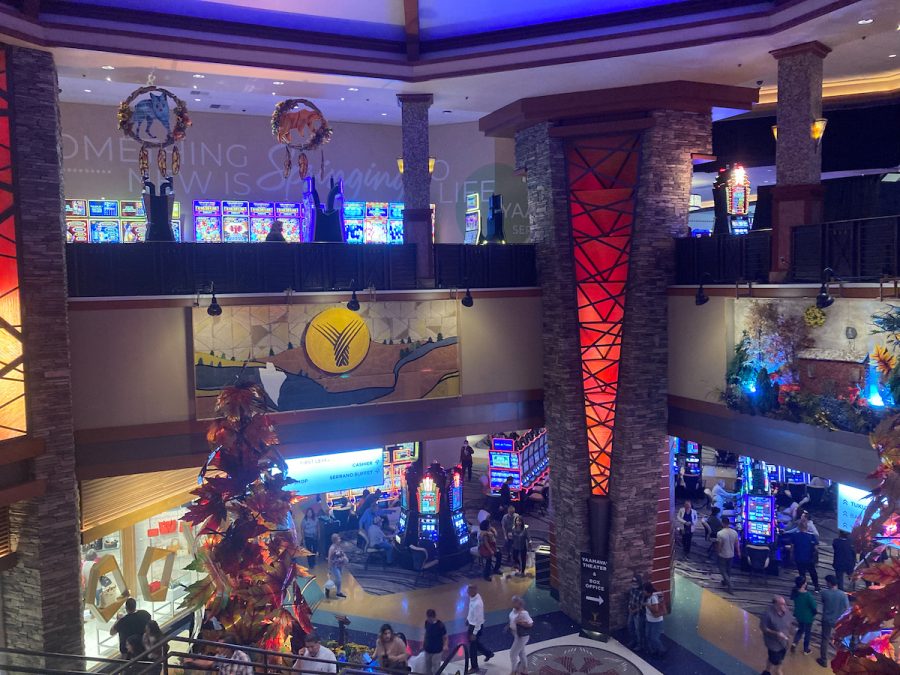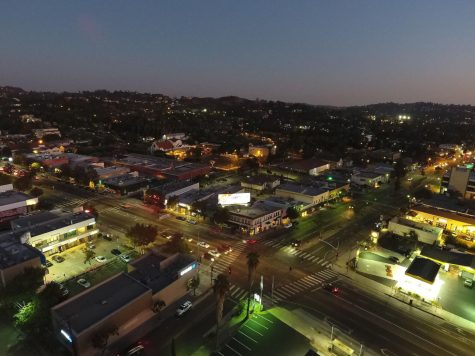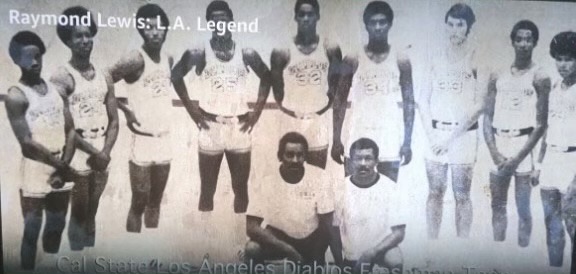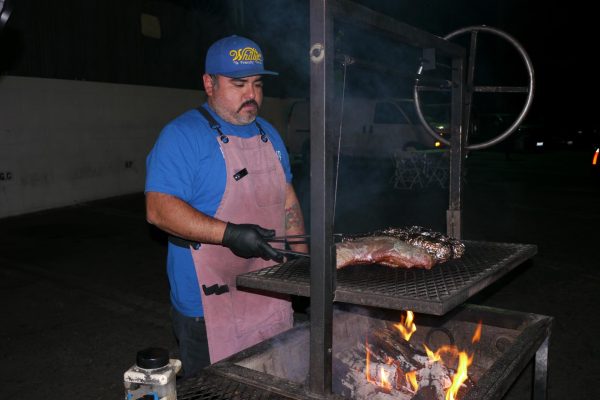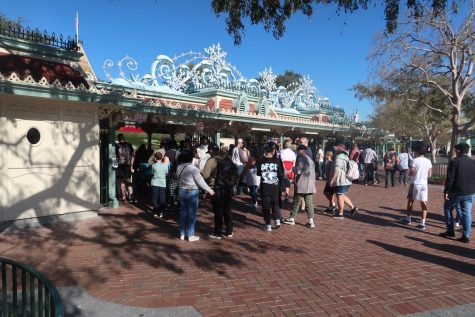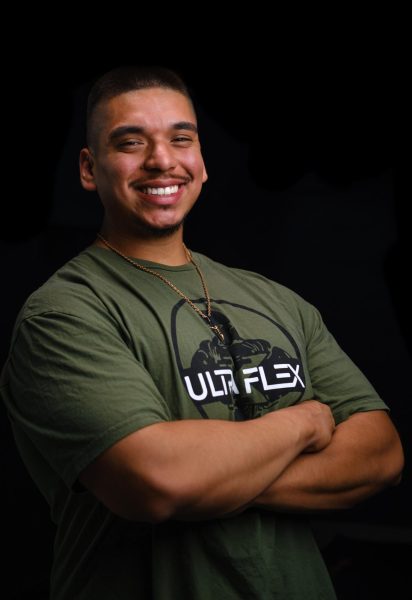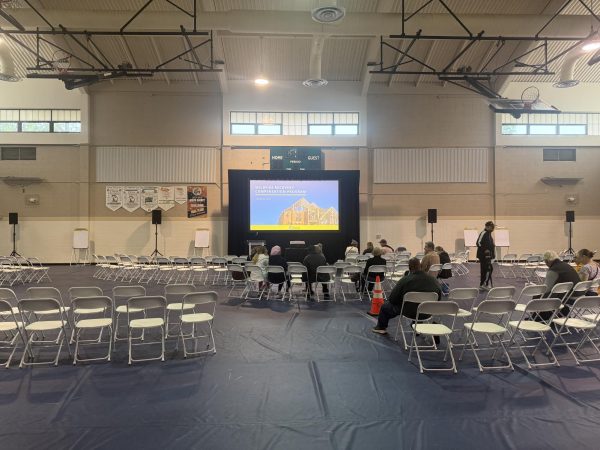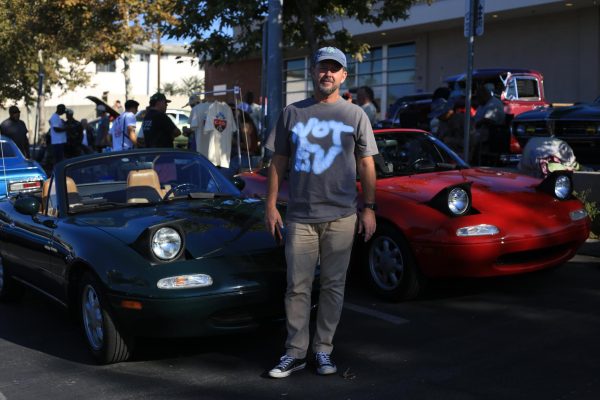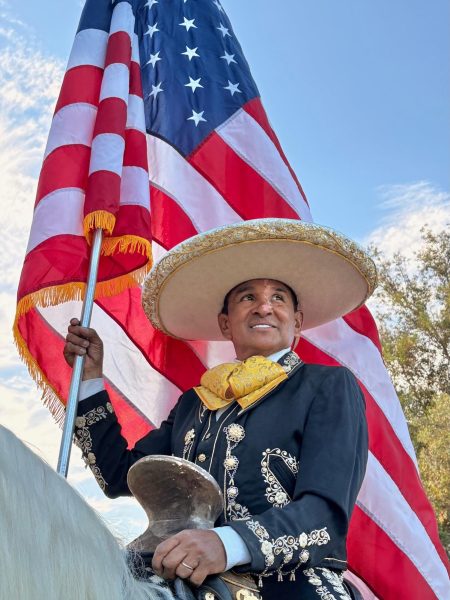Measures to legalize sports betting and online gambling spark strong feelings
New gambling measures spark divisive opinions, even at California casinos like this one. Photo by Adrian Leal
California’s newest gambling ballot measures, Propositions 26 and 27, have shattered fundraising records and splintered public opinion.
“If a kid or teenager could order something off of Amazon, imagine them having access to gambling,” said 64-year-old Rialto resident Esteban Castillo, about Prop. 27, which would allow tribal casinos and gambling companies to offer online sports betting. “There would be no way for gambling services to be accountable for who is actually accessing their sites.”
Supporters and opponents raised a combined $556 million as of Sept. 24, according to the secretary of state’s website —making it what’s considered the most expensive initiative in the state’s history.
Prop. 26 – legalizing in-person sports betting, roulette, and dice games
Prop. 26 would allow tribal casinos and racetracks to allow in-person sports betting. In California, the only legalized form of sports betting is offered in horse racing.
Tribal casinos would also be able to offer roulette and dice-based games such as Hazard, Craps, and Banca Francesa, all of which are currently illegal in the state.
Supporters of Prop. 26, including a host of Native American tribes, say that the legalization of sports betting in tribal casinos and licensed racetracks would increase the state’s tax revenue. The ballot measure would initiate a tax of 10% on profits gained by sports betting at racetracks.
About 15% of the funding raised would go to the California Department of Health’s research into gambling addiction and prevention programs and related mental health programs and grants, according to an analysis by the state. Another 15% would go to sports betting and gambling enforcement costs and the other 70% to the general fund.
Those opposed, such as the Republican Party of California and some casinos, say card rooms’ revenue could plummet if they’re hurt by the measure’s new enforcement measures and related penalties, which could then reduce taxes and fees the card rooms pay to cities where they’re located, reducing cities’ budgets and cutting local services, according to a state analysis.
Supporters have raised over $123 million while opponents have raised more than $49 million.
Prop. 27 – legalizing online sports betting
Prop. 27 would allow tribal casinos and gambling companies to offer online sports betting. Supporters of this initiative say that the proposition’s projected revenue could provide permanent solutions for homelessness, mental health and issues such as addiction in California.
“I feel like with more ways to bet at casinos, it would create more job opportunities… leading to more money for the community,” said Rafael Alfaro, 23, who lives in Highland Park and supports both gambling measures. “As an adult, you should be able to make your own decisions if you want to gamble or not.”
Supporters, including online gambling companies, have raised more than $169 million.
Opponents, including tribal casinos, have raised over $214 million and they say they worry out-of-state gambling companies would monopolize the sports betting space and harm tribal casinos.
Other opponents, like Castillo, from Rialto, worry that the online sports betting that would be allowed under Prop. 27 could lead to financial instability and gambling addictions. Plus, residents may not benefit as much as they should from the money raised, he added.
“The real issue is, who’s gonna ensure that the profits are actually going to where they say it is?” Castillo said. “Revenue from these new taxes should be audited yearly.”
Castillo knows the ills of gambling first-hand. He became addicted in 2013 when he would accompany his wife to the Morongo and San Manuel casinos at least once a week. He eventually started visiting the San Manuel casino alone over five times a week.
Castillo’s descent into addiction and debt led him to sell his Pasadena home in 2017 and relocate to the inland empire. Despite settling his finances after moving, Castillo continued to frequent the casino and began going almost every day because he lived closer.
He said that he’s still struggling with his addiction but is confident that with his recent retirement and by reconnecting with his family, he is more motivated than ever to improve.
He added that addiction and greed can be blinding: “In my experience, all it takes is one bad gambling experience and you’ll slowly lose everything you love and ultimately lose yourself.”

